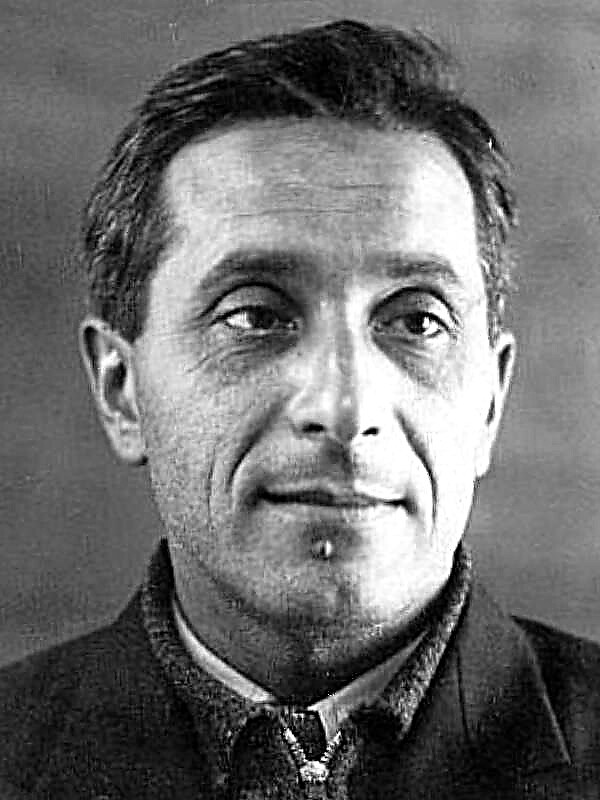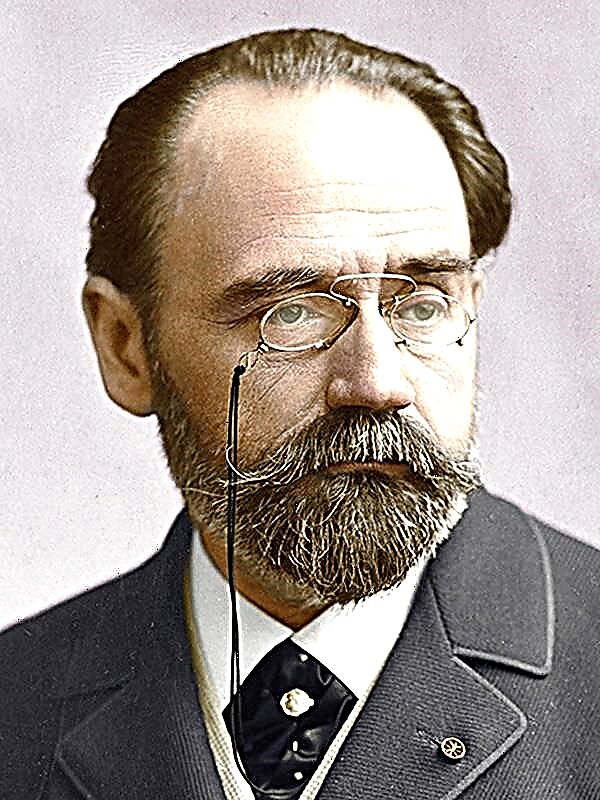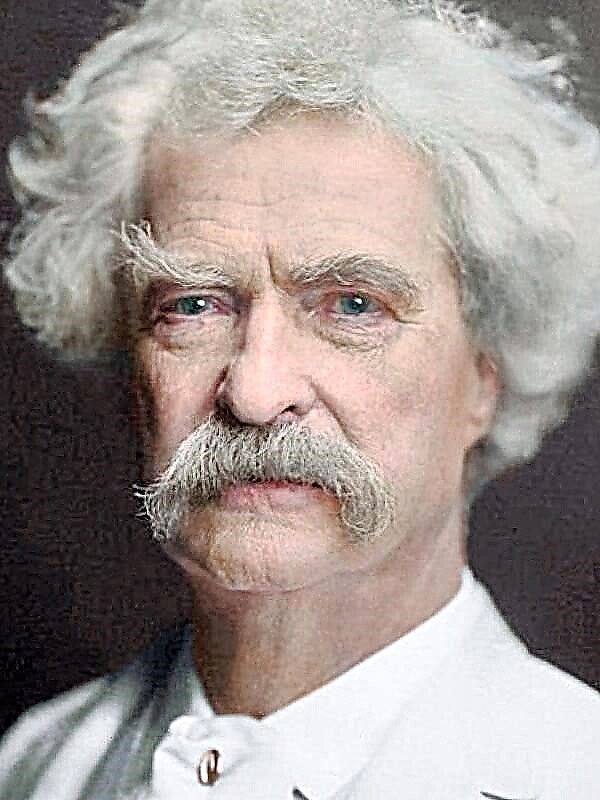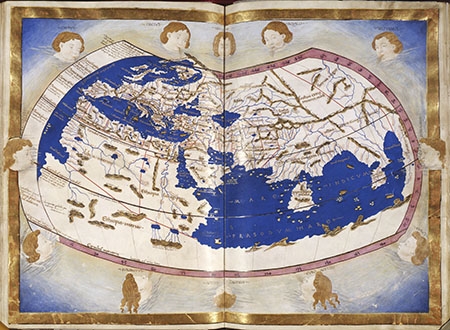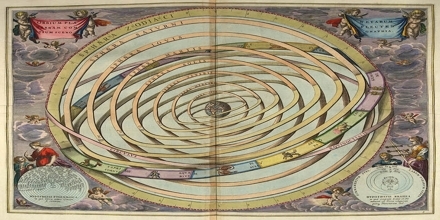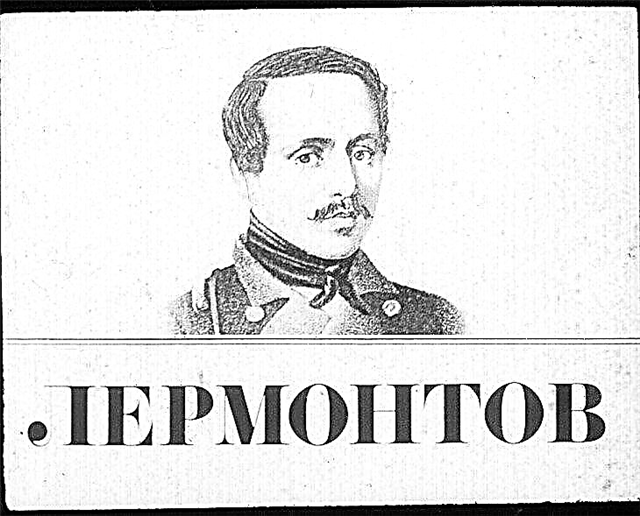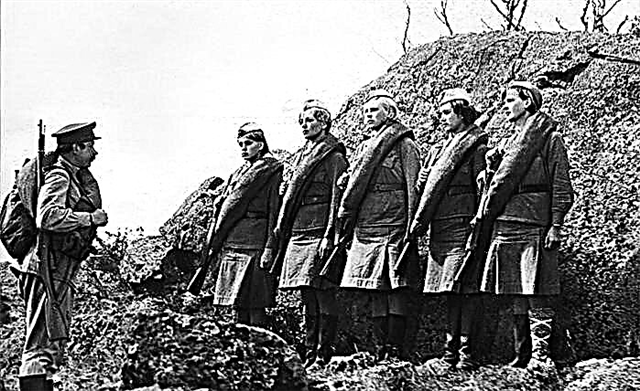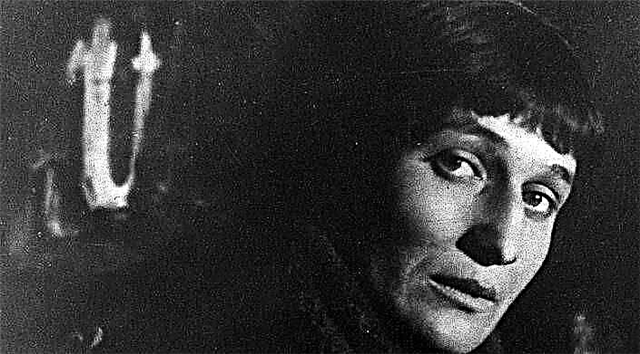In the preface, the publisher of the journal admits his weakness to readers: he is lazy and therefore does not read anything, does not correspond with anyone and does not serve anywhere. But he certainly wants to bring benefit to the fatherland, for he agrees with the words of the famous Russian poet (Sumarokov) that "it is useless to live in the light, to aggravate only the earth." Since upbringing and spiritual gifts do not allow him to serve fellow citizens with a useful composition, he decided to publish other people's works and asks him to send letters, essays and translations in prose and verse, especially satirical, critical and others, to correct morals, and he promises to print all of them in their sheets. In accordance with his inclinations, he decides to call his journal Drone.
Having printed the Parable in verses and not knowing how to fill the space in his sheet, the publisher prints a letter from his uncle (presumably its author N.I. Popov), sent back the year before last and left unanswered, and asks readers to answer his uncle instead. Uncle persuades his nephew Ivanushka to come to the city and seek a prosecutor’s position - this is a profitable position: if you take up the matter wisely, you can get ten times against a salary, and since Ivanushka’s father’s estate is “rubble with peas,” he must make good things himself.
The publisher receives a letter from a fan of any news who wants to remain anonymous (D. I. Fonvizin portrays in him his longtime opponent, playwright V. I. Lukin). This man loves to spread news about all. Good or bad - he decides depending on the time, circumstances and personality of the writer. About those who “know how to eat off,” he does not speak evil, except occasionally for the eyes, but he speaks about unrequited writers with joy at all angles, for he loves to scold and does not like to praise other people's works. He is proud that, having twenty-seven years of age, "he managed to criticize everyone, sort out, glorify himself, reduce fame among others, many women turn their heads, young gentlemen lose their minds and grow up without two and a half arshins." He himself is the author of several essays: “The Science of Being a Flatterer,” “The Way to Become an Author,” “The Way to Keep a Conversation in Continuous Fun.” He is sure that he will be one of the correspondents of the publisher “Drone”, but he rejects it and asks not to send his works in future.
The Vedomosti section, which mimics the St. Petersburg Vedomosti section, prints short stories, such as a message from Kronstadt about a young Russian piglet, “who traveled to foreign lands to educate his mind and who, having traveled with benefit, returned already completely like a pig those who want to watch can see it without money along many streets of this city. ” Another sheet tells of Zlonrav, who had been waiting for her husband's return in sadness and tears for a whole year, but when he returned, she became angry an hour later and began to send him to hell. His friends were surprised at such a quick change, but Zlonrava answered them that she cried because in the absence of her husband she had no one to scold.
Mr. Pravdulyubov (pseudonym N.I. Novikova) notes that Truten does not write according to the rules of his "great-grandmother" (published with the assistance of the empress of the magazine "Anything") and, unlike her, does not believe that it is more meritorious to condescend to vices than to correct these. Pravdulyubov agrees with “Drone” and believes that weaknesses and vices are one and the same and that it is more laudable to be a Drone, “other people's bad work is damaging than a bee that flies in all places and does not know and find anything.”
In the section “Contracts” there is an announcement alluding to Catherine II and the quick change of her favorites about the supply of “young, attractive and sufficient noblemen and philistines up to 12 people” to “fill empty places according to the state laid down by one elderly coquette about lovers”. In another announcement, suppliers of justice are invited, who need to be put in some courtroom up to ten pounds.
Mr. Pravdulyubov notifies the publisher of “Drone” that “Madam Anything was angry with us and calls our moralizing arguments cursing” because it is spoiled with praise and “that it respects a crime if someone does not praise it.”
In the poem “The Player Who Became a Scribe” (its author is A. O. Ablesimov), the playwright V. I. Lukin again makes fun of him, who quit playing cards, but broke his vow, was completely lost and was beaten.
Mr. K. N. tells the true story in a letter to the publisher of “Drone”. One judge lost a gold watch. These watches were received from one widow, who demanded in the order where the judge was sitting, justice, "which she certainly would not have received if she had not intended to part with her watch against her will." Only two entered the room where the clock lay: the contractor and the judge's nephew. The judge reasoned as follows: “Although I am a robber contrary to conscience and government decrees, I will not steal from myself,” my nephew is a noble, official person, and most of all I am a relative. So, the contractor stole, "he is a mean person, disgusted with me, I owe him." The contractor was seized and tortured, he, having no strength to endure the torment, admitted to the theft, which he did not commit, and was thrown into prison. The judge’s nephew, who actually stole the watch, lost it on the cards, and the winner laid it to one titular adviser, who, in his turn, sold it on loan for a double price to one court. The courtier gave the watch to his mistress, and she gave it to the prosecutor of that order, where the contractor was kept, so that the prosecutor tried to confuse her father, from whom she escaped. When the judge saw his watch with the prosecutor, he decided that the contractor, having stolen, sold it to the person from whom the prosecutor received it. But when the clerk tracked the watch’s journey, it turned out that it was not the contractor who stole it at all, but the judge’s nephew. The judges were very surprised at this, the impartial reader will be surprised that the clerk did not bend his mind and acted in good faith, but "most of all, she should marvel at the decision of the judge." It was ordered: "the thief of a nephew, like a noble man, punish uncle secretly, and upon release to the contractor to announce that the beatings will continue to be counted against him."
The author of the letter, signed by B. K. (F. A. Emin), describes the controversy between journalists in terms of military relations (in 1769, the war between Russia and Turkey began): “The flames of war also ignited between the writers. The writers armed themselves with their piercing feathers. Your “Trutnyu” bombardment was considerable last Tuesday. “All sorts of things” kind suffered a volley. “An unknown party was attacked by some unknown party” - this refers to a critical article in the journal This and This, published by M. D. Chulkov, directed against his literary opponents.
One of the sheets, under the guise of everyday history, tells about the resignation of the old favorite of Catherine II Count G. G. Orlov: Sebeliub came to his mistress, but was greeted coldly, because she "entered into new obligations that very day." Celebrity was offended and began to reproach his mistress for infidelity and spoke to her so rudely that she drove him away. As soon as he left, he began to be tormented by jealousy and repentance, and he decided to stab himself, but lost his knife and asks the finder to return him for a fee consisting of letters from his former mistress, "because he certainly wants to fulfill his intention."
M.V. Khrapovitskaya-Sushkova, hiding under the pseudonym Really as cute, paints Portraits: “I am good, intelligent, honest, virtuous, and others not,” “He often makes tricks because he always thinks,” “This one says about everything and knows nothing. ”
In an anonymous article, N. I. Novikov, parodying the manner of "All sorts of stuff," fiercely polemicizes with her.
The tombstone of Lomonosov in poetry extols his poetic talent and is also an attack against Catherine II, who underestimated him.
The article, signed by “Your Servant” and probably belonging to N.I. Novikov, tells the story of prejudice, which makes many Russians blaspheme everything done by their compatriots and praise only foreign goods. One person wanted to buy cloth for a dress, but did not believe that Yamburg cloth was not inferior to “Aglinsky”, and then his friend brought him samples of various cloths, saying that they were all “Aglinsky.” The buyer and the tailor chose Yamburger, and when a friend told the buyer about the forgery and returned the extra money, because Yamburg cloth is cheaper, the buyer did not give up and said: although the Yamburg cloth is good, it doesn’t make so much difference.
In the section “Recipes” are given portraits of “His Excellency Mr. Nedoum”, “some judge”, Mr. Samolyub and others, and recipes for their ailments are placed. So, Mr. Bezrassud, ill with the opinion that “the peasants are not human beings,” who considers them to be slaves and does not dignify them not only words, but even nodding, is instructed to “examine the bones of the lords and peasants twice a day, until until he finds a distinction between the lord and the peasant. "
In his letter, Pravdulyubov claims that “criticism written on the face, but so that it is not open to everyone, can more than fix the evil. Otherwise, if the face is meant to be so that all readers recognize him, then the vicious one will not get better, but he will also add new vices, that is, malice. ”
P. S. writes letters denouncing the crooks-judges and crooks-landlords, and asks the publisher of “Drone” how to deal with them, to which he replies “this is not my business”.
In a "formal reply" (letter) to the landowner (the likely author of which is D. I. Fonvizin), the village headman Andryushka reports collecting the quitrent from the peasants, complains about the oppression of the neighboring landowner Nakhraptsov and asks for leniency to the large Filatka, attaching his petition, where he asks to give him a nag and to dismiss him for a year from the quitrent, so that he can "rise". In response, the landowner orders, among other things: “At the request of the peasants, Filatka should leave the cow and collect money from them, and so that they wouldn’t make any other sloths, buy Filatka a horse for worldly money and announce to Filatka that he henceforth I didn’t bother with my petitions and would pay the quitrent without excuses and endlessly. ”
In the “Laughing Democritus” section, the Midsummer, Mot, Nadmen and others are ridiculed: “I see two people: one assures the other of his friendship and deceives, and the other pretends to believe that and does not know how he defames him. Both cheat and both cheat. Ha! Ha! Ha!".
In the dialogue “Me and Drone”, Drone answers the question with what intention he publishes his journal, answers that he wants to bring benefit and amusement to his fellow citizens. He hopes to earn the attention and praise of rational and impartial readers and the favor of noble gentlemen and patronage, for he tells them the truth, shows their weaknesses and inadvertent misconduct in order to warn them of them. I believe that the favor and patronage of noble gentlemen can only be earned by flattery and praise, for there are few virtuous people among them. I believe that noble people should do good deeds to humanity, help the poor and protect the oppressed. They should think more about the welfare of the state than about themselves; the ability to do good to others should please and comfort a virtuous person. Drone argues that in every rank there are many people, both virtuous and vicious, so he praises some and criticizes others. Thus, it cannot be that no one likes his publication. But I say that many call Drone a malevolent person who spares no one, and does not see anything in his publication other than "cursing." However, I add that the Drone is scolded only by those who deserve to be scolded.
In the last two pages of 1769, the publisher describes his readers: “Nonsense praises“ Drone ”for hearing how it was praised in two or three houses,” “Enviously blasphemes my journal: this is not surprising, because it blasphemes, Apart from his writings ”,“ The thin judge praises a lot of things in “Drone”, but does not praise what is written on the thin judges ”,“ The vanity of short-range reason, therefore, cannot write well. I read my magazine to him, he listened, and as soon as I graduated, I began to tell me about my work: he is full of good thoughts about himself, therefore, he has no time to think about others. ” In conclusion, the publisher says that if he could please a certain number of readers, he will consider himself rather awarded for his work. His pride is not so great that he hoped to earn immortal fame with these trinkets. The writings of Sumarokov and Lomonosov will be amazed by the descendants, and the “Drone” and other trinkets are now there will continue to be trinkets.
In the first pages, the publisher describes how anyone imagines happiness: Zhidomor seeks it in wealth, Pyshen in splendor, etc., and also addresses its readers with New Year's wishes. He wishes to himself that “they would like my fellow citizens to be happy, that my publication would be useful and that they would not scold me.”
Find out how sweet the Portraits are again writing, asking them to make signatures under them, which the publisher does. Under the last portrait, describing a girl of about eighteen years old, he makes an inscription: “If I am not mistaken, then you are YOURSELF”.
Impatient (presumably M. Popov) sends for printing songs and were in verse.
I don’t know who (L. Leontyev) translated an article by Chenzyi (Chen-tzu) from the Chinese language containing advice to the emperor regarding state government.
An anonymous author (probably I. Golenevsky) sent a translation from Latin of the inscription on the tomb of MV Lomonosov.
The young writer writes Pictures, equipping her speech with words from the jargon of dandies and goldfinches: she portrays a widow of about twenty years old, and beside her a bent sick old man in a rich outfit. “The bedroom and the office of this widow hides her two young lovers, whom she contains as a dependent old man in the position of assistants. She does this to ease the old age of her lover. ” After reading her Pictures in the magazine, she is indignant: the publisher redirected them, moreover: he distorted the thoughts of the painter, who (following the advice of “All sorts of things” criticizing only a small bipod) portrayed the bribe-taker, and the publisher “Trutnya” called him a judge.
Readers complain that the Drone of 1770 is worse than last year. The publisher is surprised: the current magazine is scolded for the same thing, for which last year they scolded last year. What seemed new a year ago is now bored.
The vertoprach (probably N.I. Novikov) writes: “All sorts of things” said goodbye, “And this and that” turned into nothing, the “Infernal mail” stopped, it’s time to close the “Drone” too.
In the last sheet, the publisher writes: “Against my wishes, readers, I’m parting with you” and hints that after the closure of “Drone” will begin to publish a new magazine.

